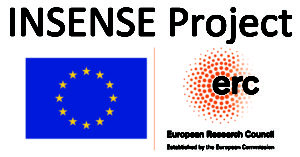New paper in APP
Different effects of spatial and temporal attention on the integration and segregation of stimuli in time
Poppy Sharp, David Melcher, and Clayton Hickey
in press, Attention, Perception and Psychophysics
Having expectations about when and where relevant stimuli will appear engenders endogenous temporal and spatial orienting, and can provide vital benefits to visual processing. Whilst more is known about how each of these forms of orienting affect spatial processing, comparatively little is understood about their influence on temporal integration and segregation of rapid sequential stimuli. A critical question is whether the influence of spatial cueing on temporal processing involves independent spatial and temporal orienting effects or a synergistic spatiotemporal impact. Here, we delineate between temporal and spatial orienting engendered by endogenous cues by using a paradigm with identical visual stimulation when the goal is to integrate or segregate stimuli in separate blocks of trials. We find strong effects of spatial orienting on both integration and segregation performance. In contrast, temporal orienting engendered only an invalid cueing cost, for integration trials only. This clear differentiation between spatial and temporal cueing effects provides constraints to inform arbitration between theories of how attention biases the visual processing stream and influences the organization of visual perception in time.
